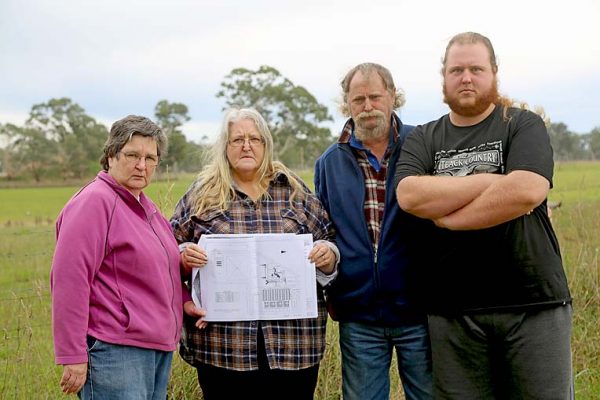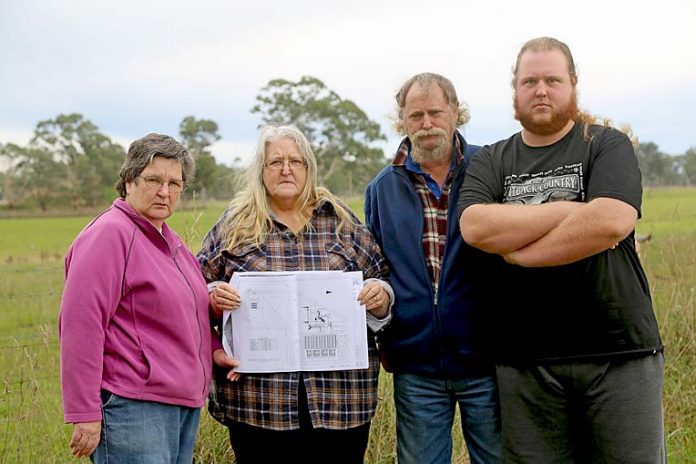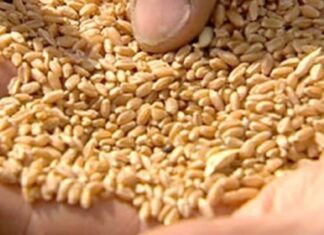
A NEW timber industry complex and thermal energy plant has been approved for Kalangadoo, which is expected to support an estimated 90 jobs in the township when operational.
But nearby landholders are disappointed with the Wattle Range Council Assessment Panel’s decision to green light the development at its current location, citing concerns on the categorisation of development, impacts on amenity, noise, odour and lights, as well as operating hours.
Shield Resources’ $40m project aims to produce 300,000 cubic metres – 150,000 cubic metres initially – of timber planks and 1.56 million tonnes of bio-granular fuel each year.
The timber planks will be produced by sourcing logs of 120 to 400mm in diameter and 3.9 metres in length and brought to the subject site by B-Double trucks.
An estimated 60 jobs will be available during the construction phase and the operational phase will support around 90 direct jobs, with 100 indirect job opportunities.
Kalangadoo residents Wolfgang and Debbie Guenther, son Alex and neighbour Leanne Young have raised concerns with the proximity of the proposed development, with the subject land comprising of two parcels bordering both residential properties.
“If they shifted the location and put the new mill behind the existing mill there would be no problem,” Ms Guenther said.
“It is on higher ground, there are no trees of significance and there are no water issues.
“The land they are proposing to build on is a swamp, which means they will have to disrupt the ecosystem.
“They will also have to cut down all of the trees which have been on the land for years.”
The group questioned why the development was listed as a Category 2 development as opposed to the higher Category 3 designation, which require a more general public notification with attendant appeal rights.
“The thermal plant is what concerns me, not so much as it is a problem, but that should have been a Category 3 as it is a special build,” Ms Guenther said.
“This is a multi-million dollar plant and when you look around the place and see other Category 3 things, it makes sense.”
In a submission to the panel on behalf of the group, consultant Frank Brennan objected council’s classing the proposed timber mill and thermal energy plant as a Category 2 development.
“It is our contention the proposed timber mill and thermal energy plant development is a form of special industry,” he said.
“The processing of timber products including log bark peeling and the sawing of timber and the burning of timber resideues to fuel the thermal energy plant will undoubtedly be likely to cause or create dust, fumes, vapours or smell.
“(It will) thereby produce conditions which are, or may become, offensive to the occupiers or users of land in the locality of or within the vicinity of the locality and subject land.
Mr Brennan claimed the applicant had not provided any information on mitigating risks to native vegetation and red tailed black cockatoos, claiming the land was located where the nationally threatened and endangered bird species was known to occur.
He argued the proposed development was significantly at variance with council’s development plan and said it would have a detrimental impact on the Guenther’s property.
“No reference has been made in the application to strategies or plans that will be put in place to negate any impacts on these birds,” he said.
“No information has been provided in the application regarding the need to lodge an Environment Protection and Biodiversity Conservation Act referral to the Minister for Environment as the proposed development is considered to be an action that could have a significant impact on our environment.”
In response, planning staff were unsure why the application’s categorisation was being challenged, noting Mr Brennan had lodged an application for a similar timber processing facility and categorised it as special industry Category 2.
The report said the site had been historically cleared for grazing with very few native trees, but said any tree removal would follow the correct process.
Staff said there was no evidence endangered birds habitat the area and there was no requirement for the proposal to be referred to the Federal Government.
Wattle Range Council chief executive Ben Gower said he had queried and questioned the categorisation with staff members, but was reassured it was the appropriate designation.
Mr Gower said the panel, which he described as sitting at arm’s length of council, was required to approve any development if it complied with the legislative requirements.
“I am fairly comfortable with the probing and questioning I have done about the categorisation and the staff response,” he said.
“There are more than 40 conditions on the proposal, so there is a lot involved to make sure it complies with all of the rules.”
Council Assessment Panel presiding member Liz Travers said she was unable to comment on the deliberation, but said members of the panel were happy with the report presented by the officer.








